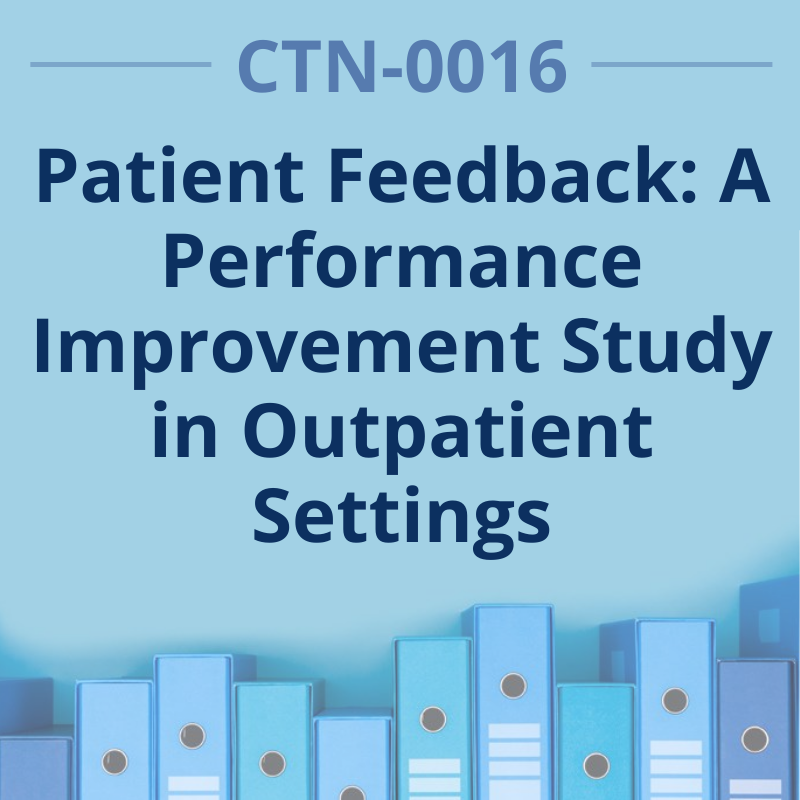CTN-0016: Patient Feedback: A Performance Improvement Study in Outpatient Addiction Treatment

Robert Forman, PhD
Lead Investigator
Treatment Research Institute
University of Pennsylvania
bforman@tresearch.org
Although accrediting organizations, funding sources, and other agencies require community treatment providers to monitor performance, there are no studies showing that this is an effective practice or that it helps addiction treatment patients, clinicians, or managers. This feasibility study tested whether one such strategy, feeding back performance data to clinic staff, could improve patient attendance and abstinence. Ratings by patients of their group counseling experience, plus information on patient attendance and retention, were reported to clinicians and program managers twice a month. Every month managers and clinicians met to discuss the clinic-wide reports, identify opportunities for improvement, and make plans to improve the clinic-wide ratings.
Primary Findings
The project demonstrated that the implementation of a semiautomatic performance improvement system directed at clinicians in addiction treatment facilities was generally feasible from both a research and a clinical perspective. The four participating clinics continued to use the system after the intervention phase, suggesting that implementation was sustainable. While the typical clinician accessed feedback reports only 2.3 times (out of a maximum of 8) over the course of the study, all clinicians participated in team meetings and were potential beneficiaries of suggestions for performance improvement and action steps that arose out of these meetings. In general, average alliance, treatment satisfaction, and drug/alcohol use outcomes were favorable across all assessments.

Primary Outcomes Article: Forman R, et al. A feasibility study of a web-based performance improvement system for substance abuse treatment providers. Journal of Substance Abuse Treatment 2007;33:363-371.
Related Resources
- CTN-0016 Study Protocol
- Publications in the Library about CTN-0016
- Study data from NIDA Data Share
- Study Manual: Forman R, et al. Patient Feedback Manual, v. 1.0. Philadelphia, PA: University of PA, Treatment Research Institute, 2003
- Patient Feedback web site: http://patient-feedback.org (no longer available, 8/2010)
- NIDA protocol page
Node Involvement
Lead Node(s):
All Participating Nodes: